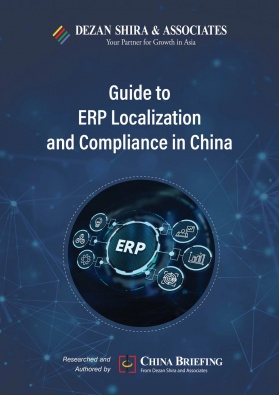China Expands Private Pension Scheme Nationwide Following Two-Year Pilot Program
After a two-year pilot program, China has officially expanded its private pension scheme nationwide. Starting December 15, 2024, workers covered by urban employee basic pension insurance or urban-rural resident basic pension insurance across the country can participate in this supplementary pension scheme. This nationwide rollout represents a significant milestone in China’s efforts to build a comprehensive pension system, addressing the challenges of a rapidly aging population.
On December 12, 2024, the Ministry of Human Resources and Social Security, together with four other departments including the Ministry of Finance, the State Taxation Administration, the Financial Regulatory Administration, and the China Securities Regulatory Commission, announced the nationwide implementation of China’s private pension scheme effective December 15, 2024. The initiative extends eligibility to all workers enrolled in urban employee basic pension insurance or urban-rural resident basic pension insurance.
A notable development is the expansion of tax incentives for private pensions, previously limited to pilot cities, to a national scale. Participants can now enjoy these benefits across China, with government agencies collaborating to ensure seamless implementation and to encourage broad participation through these enhanced incentives.
This nationwide rollout marks a critical step in China’s efforts to establish a comprehensive personal pension system. The reform aims to mitigate the challenges posed by a rapidly aging population, ensuring long-term financial security for retirees.
Background and initial rollout of the private pension Scheme in China
China first introduced its private pension scheme in November 2022 as a pilot program covering 36 cities and regions, including major hubs like Beijing, Shanghai, Guangzhou, Xi’an, and Chengdu. Under the program, individuals were allowed to open tax-deferred private pension accounts, contributing up to RMB 12,000 (approximately $1,654) annually to invest in a range of retirement products such as bank deposits, mutual funds, commercial pension insurance, and wealth management products.
Read more about China’s private pension pilot program launched two years ago: China Officially Launches New Private Pension Scheme – Who Can Take Part?
The strategic importance of the private pension scheme for China
The nationwide implementation underscores the Chinese government’s commitment to addressing demographic challenges and promoting economic resilience. By providing tax advantages and expanding access, the scheme aims to incentivize long-term savings and foster greater participation in personal retirement planning.
The reform is expected to catalyze growth in China’s financial and insurance sectors while offering individuals a reliable mechanism to enhance their retirement security.
Q&A: Nationwide implementation of the private pension scheme of China
Q1: Who is eligible to participate in the private pension scheme?
A: Workers in China who are enrolled in either the urban employee basic pension insurance or the urban-rural resident basic pension insurance can participate. The scheme is open nationwide starting December 15, 2024.
Q3: What changes have been made regarding tax incentives?
A: Tax benefits for private pensions, previously limited to pilot cities or regions, are now available nationwide. Relevant departments are tasked with ensuring smooth implementation and maximizing the impact of these incentives to encourage participation.
Q4: What new financial products are included in the scheme?
A: The updated scheme expands the range of eligible products, which now include:
- Treasury bonds
- Special pension savings
- Index funds
There is also encouragement for financial institutions to develop long-term pension savings products and low-volatility or absolute return funds tailored to retirement needs.
Q5: What measures are in place to manage investment risks?
A: Financial institutions are required to:
- Clearly disclose asset allocation and risk levels of pension products
- Categorize and display products based on risk levels
Additionally, institutions may offer default investment options based on individual preferences and risk tolerance, provided participants agree.
Q6: What enhancements are being made to improve service levels?
A: Key initiatives include:
- Expanding the range of banks permitted to offer pension services
- Simplifying procedures, such as removing the need for “recorded video” when purchasing commercial pension insurance online
- Building a robust digital infrastructure for account management, transactions, and tax benefit access through electronic social security cards and related platforms.
Q7: What are the new conditions for early withdrawal of funds?
A: Early withdrawal is now allowed under additional conditions, such as:
- Severe illness
- Receiving unemployment insurance benefits under certain conditions
- Receiving minimum subsistence allowance
Specific rules for these conditions will be established separately.
Q8: How can participants withdraw funds from their private pension accounts?
A: Participants can apply to withdraw through:
- Social insurance agencies
- National unified online service portals
- The bank where their pension account is registered
Withdrawals can be taken as monthly installments, in parts, or as a lump sum, and participants can request to change their chosen withdrawal method.
About Us
China Briefing is one of five regional Asia Briefing publications, supported by Dezan Shira & Associates. For a complimentary subscription to China Briefing’s content products, please click here.
Dezan Shira & Associates assists foreign investors into China and has done so since 1992 through offices in Beijing, Tianjin, Dalian, Qingdao, Shanghai, Hangzhou, Ningbo, Suzhou, Guangzhou, Haikou, Zhongshan, Shenzhen, and Hong Kong. We also have offices in Vietnam, Indonesia, Singapore, United States, Germany, Italy, India, and Dubai (UAE) and partner firms assisting foreign investors in The Philippines, Malaysia, Thailand, Bangladesh, and Australia. For assistance in China, please contact the firm at china@dezshira.com or visit our website at www.dezshira.com.
- Previous Article Financial Analysis and Cost Audits: Identifying Cost Inefficiencies
- Next Article China’s Central Economic Work Conference (CEWC): Key Takeaways and Priorities for 2025

























